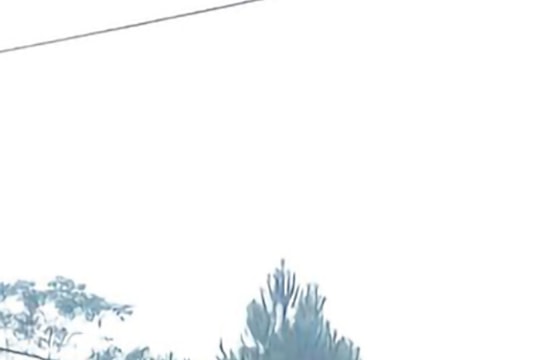Comrade Truong Chinh - Exemplary communist, outstanding leader of the Party
(Baonghean) - The history of the Vietnamese revolution always remembers the great contributions of comrade Truong Chinh, one of the first communists of our country's revolution, an excellent student of President Ho Chi Minh. Trained and matured in the revolutionary movement of the people, comrade Truong Chinh was a steadfast, indomitable, talented communist with an exemplary life, one of the highly prestigious leaders of our Party and nation.
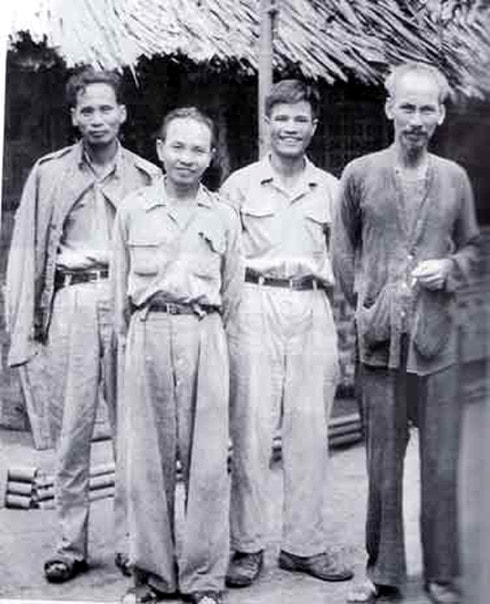 |
| Comrade Truong Chinh was a close colleague and student of President Ho Chi Minh and is considered an outstanding leader in the turning points of the Vietnamese revolution. In the photo, from right to left: President Ho Chi Minh, Director of the General Political Department Nguyen Chi Thanh, General Secretary Truong Chinh, Deputy Prime Minister Pham Van Dong in Viet Bac. |
Comrade Truong Chinh's real name is Dang Xuan Khu, born on February 9, 1907 in Hanh Thien village, Xuan Hong commune, Xuan Truong district, Nam Dinh province; in a patriotic intellectual family in a rural area rich in historical and cultural traditions. The traditions of his homeland and family educated, trained and fostered his revolutionary ideals.
At the age of 18, he participated in the patriotic movement and then joined the Vietnam Revolutionary Youth Association. Through studying "The Revolutionary Path" and the works of Nguyen Ai Quoc, Marxism-Leninism, from a patriot, he became a communist, an excellent student, and a trusted comrade of President Ho Chi Minh.
In 1929, he participated in the movement to establish the Indochinese Communist Party in the North. In 1930, the Communist Party of Vietnam was born, and comrade Truong Chinh was appointed to the Central Party's Propaganda and Agitation Committee. At the end of 1930, he was arrested by the imperialists and sentenced to 12 years in prison in Hoa Lo and Son La prisons.
During the first 10 years of his activities, when he was arrested, imprisoned as well as when he was working publicly, he devoted all his energy, intelligence and revolutionary enthusiasm to participating in propagating the Party's policies and guidelines, contributing to nurturing the theory and revolutionary spirit of a large number of cadres and people, many of whom became key figures of the revolution.
After the outbreak of World War II, the enemy intensified terrorism, most of the Central Committee members were arrested and killed, many party and mass organizations were destroyed. The provisional Central Committee elected by the 7th Central Conference (November 1940) had only 3 members left.
As Acting General Secretary during this extremely difficult period, Comrade Truong Chinh sent cadres to establish contacts and restore the organization; sent people to Guangxi to contact and welcome leader Nguyen Ai Quoc back to the country. The revolutionary movement was gradually restored and consolidated, preparing forces for the August Revolution.
At the 8th Central Conference, comrade Truong Chinh was officially elected as the Party's General Secretary. After the Conference, he left Pac Bo to go to the lowlands to directly lead the movement, proposing the initiative to establish a system of interlinked Safe Zones (ATK).
From August 1942 to July 1944, leader Nguyen Ai Quoc went to China and was imprisoned by Chiang Kai-shek's government for 14 months; comrade Hoang Van Thu was captured by the enemy and executed; comrade Hoang Quoc Viet was sent on a mission abroad. The great responsibility of the Party and the revolution was almost placed on the shoulders of General Secretary Truong Chinh alone.
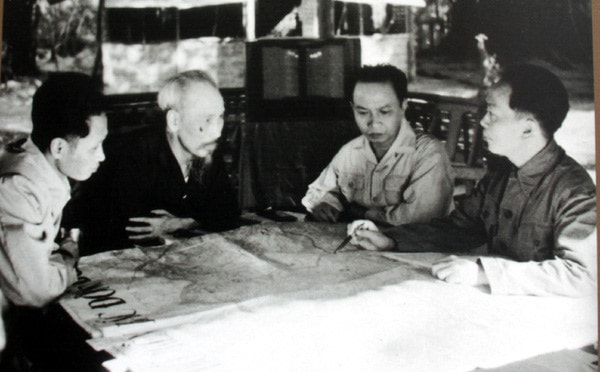 |
| During the resistance war against French colonialism, under the leadership of President Ho Chi Minh, comrade Truong Chinh and the Politburo directly commanded the resistance war and won great victories, leaving a deep mark in the history of our nation. In the photo, President Ho Chi Minh, General Secretary Truong Chinh and Party and State leaders discussed the plan to launch the Dien Bien Phu campaign at Dinh Hoa Safe Zone, Thai Nguyen, on December 6, 1953. |
But with his intelligence, sharpness, and quick response ability, he and the Central Committee made important decisions that brought the revolutionary cause to leap forward. Most notably, he predicted the Japanese-French fighting and soon chaired the Central Committee Standing Committee Conference to issue the Directive "Japanese-French fighting and our actions".
Together with Nguyen Ai Quoc's "Appeal", the Directive clearly pointed out the coming opportunity and had a decisive effect in mobilizing and guiding the entire Party and people in the anti-Japanese movement to save the country. At the National Congress in Tan Trao, comrade Truong Chinh was again appointed to be in charge of the National Uprising Committee and at 11:00 p.m. on August 13, 1945, the Committee issued the general uprising order. In a short time, the August Revolution succeeded, giving birth to the Democratic Republic of Vietnam.
Comrade Truong Chinh's outstanding contribution during this period was that he, together with Uncle Ho, proposed the guidelines for the new revolutionary stage at the 8th Central Conference and he was the one who directly directed the organization and implementation, bringing the August Revolution of 1945 to success.
During the resistance war against French colonialism, under the leadership of President Ho Chi Minh, comrade Truong Chinh and the Politburo directly commanded the resistance war. The Party's viewpoint on the all-people, comprehensive, long-term resistance war was explained and developed by comrade Truong Chinh in the work "Resistance Will Certainly Win". The work clearly presented the stages of the resistance war, consolidating the people's belief and raising their will.
In practice, he not only focused on directing the resistance mission, but also paid great attention to the nation-building aspect, gradually implementing the slogan "land to the tiller" to prepare the premises for advancing to socialism. From those correct policies and guidelines, together with vivid reality, our nation's resistance war against French colonialism achieved great victory, leaving a deep mark in our nation's history.
During the resistance war against the US to save the country, as Chairman of the National Assembly Standing Committee, and then Chairman of the State Council, comrade Truong Chinh and the Politburo made significant contributions to preparing and making strategic decisions, leading the resistance war against the US to save the country to complete victory.
A particularly important contribution of General Secretary Truong Chinh was to lay the foundation for the renovation process. In 1986, in his position as General Secretary, he soon recognized the trend of the times, the reality of the country, the demands and aspirations of the people to propose a renovation policy.
During the preparation for the 6th Congress, he said, “For our country, innovation is an urgent requirement, a matter of vital importance.” The 6th Congress became a Congress of innovation, marking a new milestone in the history of the Vietnamese revolution, a turning point in the theoretical thinking of our Party. As an Advisor to the Party Central Committee, he actively contributed to the development of the Platform and Socio-Economic Strategy, preparing the content for the 7th Congress of the Party.
Throughout his revolutionary activities, Comrade Truong Chinh proved to be an excellent student and one of President Ho Chi Minh's close comrades in arms. He was not only an outstanding political leader of our Party and State, but also a great theorist, culturalist and journalist of our country.
He left behind many valuable works: "Against Reformism" (1935); "The Peasant Problem" (co-written with comrade Vo Nguyen Giap in 1937-1938); "The Party's New Policy" (1941); "The Resistance Will Definitely Win" (1947); "Discussing the Vietnamese Revolution" (1965); "Grasp the Three Great Lessons to Carry Out Two Strategic Tasks" (1986)...
Through these works, comrade Truong Chinh clarified two major issues. One is the theory of developing Marxism-Leninism and Ho Chi Minh thought; applying Marxism-Leninism and Ho Chi Minh thought to the specific circumstances of the Vietnamese revolution to contribute to defining the Party's strategic and tactical lines. Two is the theory of the national democratic revolution advancing to the socialist revolution. These are important contributions to the treasure of Vietnamese revolutionary theory.
Imbued with President Ho Chi Minh's viewpoint: "Culture and art are a front. You are soldiers on that front", at each historical stage, before each challenge of the revolution, comrade Truong Chinh correctly assessed the situation, and pointed out the specific responsibility of culture.
A series of his works and articles form a complete system of correct, sharp and creative viewpoints of our Party in applying Marxism-Leninism to Vietnamese culture and art.
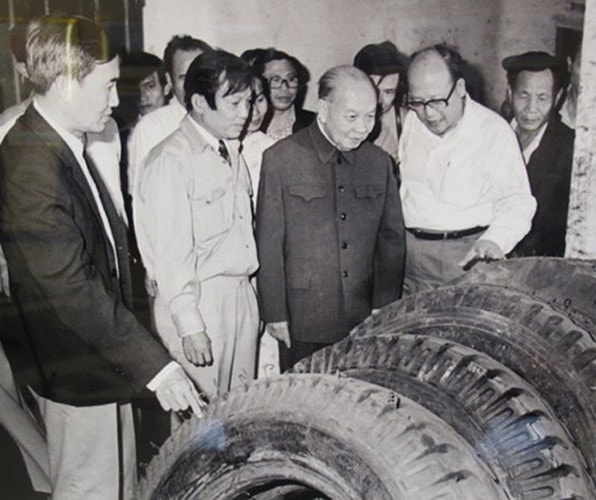 |
| In preparation for the 6th Congress, he went to many localities to grasp the situation and listen to proposals. General Secretary Truong Chinh went to survey and practice in nearly 20 provinces and cities from the South, to the Central and to the North to find out the lessons of success and failure of the grassroots, to discover the requirements and innovations of the people of the whole country, to on that basis innovate the way of thinking and working in building and developing the country. |
Most prominent were his contributions in the drafting of the Vietnamese Culture Outline; Report on Marxism and Vietnamese Culture; Reports read at National Literature and Arts Congresses. These were the theoretical basis for building a new Vietnamese culture according to the motto of national, scientific, and popular.
He also successfully continued the journalism career of Nguyen Ai Quoc, and was an outstanding writer of revolutionary journalism right from the Democratic Front period. He created a revolutionary political writing style for the country's journalism.
His articles were highly combative, persuasive, and had a profound influence on the people. Since his youth, he was the editor-in-chief of many important Party newspapers and later became the person directly responsible for the Party's mouthpieces such as "Liberation Flag", "Truth", "People", "Tap Magazine Tien Phong", "Tap Magazine Cong San"...
In him, the politician, thinker, theorist, cultural activist, journalist, poet (pen name Song Hong) were all combined into one. That was a vivid expression of the conscience, intelligence and noble revolutionary sentiments of a communist soldier, a revolutionary leader of the Party following Marxism-Leninism.
At the age of 81 (1907 - 1988), with 63 years of steadfast and continuous revolutionary activities, comrade Truong Chinh set a shining example and left us valuable lessons, which are: A lifetime of sacrifice and struggle for the independence and freedom of the Fatherland, for socialism, for the happiness of the people; constantly studying and practicing according to the moral example of Ho Chi Minh: diligence, thrift, integrity, impartiality, impartiality; steadfast revolutionary will, principles and discipline, sincere feelings towards compatriots and comrades, modesty and simplicity in daily life, scientific, careful and specific working style to achieve practical results; The spirit of daring to think, daring to do, daring to take responsibility before the Party and the people; Faced with historical turning points, we must renew our thinking, based on looking straight at the truth, correctly assessing the situation, proposing appropriate policies, and relying on the people's strength to achieve victory.
Nguyen Thi Hong Vui
(Provincial Party Committee's Propaganda Department)
| RELATED NEWS |
|---|

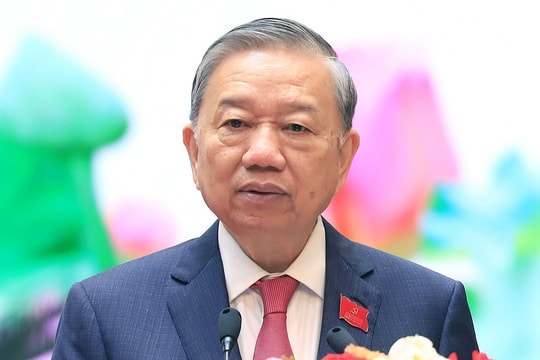
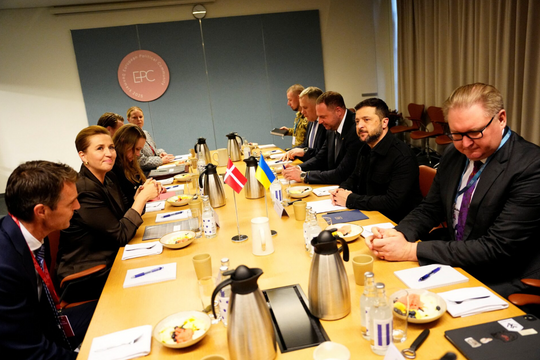
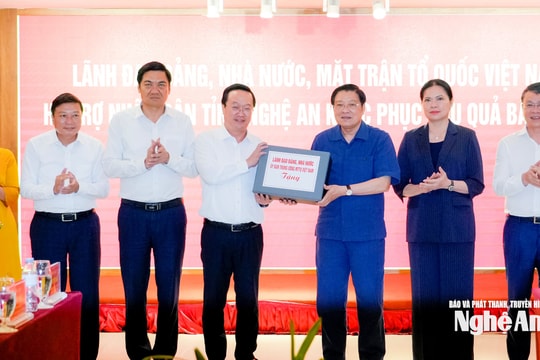
.jpg)
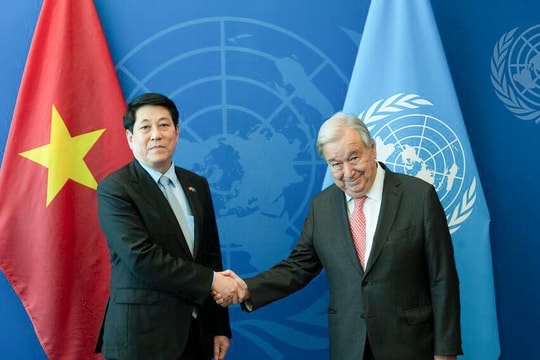
.jpg)
